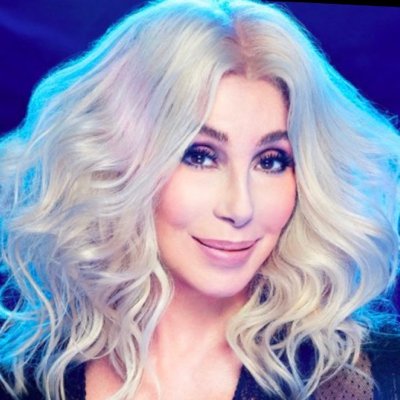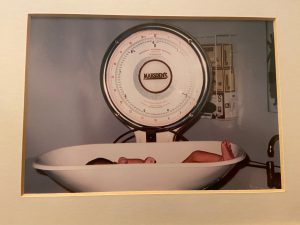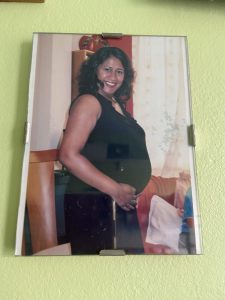I turned 48 a few weeks ago and tomorrow one of my daughters, the first one that I physically grew in my womb, turns 16. In between, I had the enormous pleasure and privilege to see the wonder that is Cher. An iconic performer who defies every stereotype as she kills it at the O2 at 73 (nearly the same age as my mum!)
These life events have me pensive and reflective about age. We don’t talk about Age as a protected characteristic so much. Let’s start with the Equality Act 2010 that says that you must not be discriminated against because:
- you are (or are not) a certain age or in a certain age grouppare
- someone thinks you are (or are not) a specific age or age group, this is known as discrimination by perception
- you are connected to someone of a specific age or age group, this is known as discrimination by association
Age groups can be quite wide (for example, ‘people under 50’ or ‘under 18s’). They can also be quite specific (for example, ‘people in their mid-40s’). Terms such as ‘young person’ and ‘youthful’ or ‘elderly’ and ‘pensioner’ can also indicate an age group.
My own attitude to age and aging is something I have been thinking about. It’s both really important and at the same time totally irrelevant. I regularly find it hard to believe I am a grown-up, with a driving licence, mortgage and children, let alone that I’m 48. Sometimes I try and deny it. Other times I am proud of it. I both love it when people say that they can’t believe my age and feel annoyed with myself for caring. In some ways, age equals experience. The older you are, the more you have had a chance to accumulate amazing and interesting life experiences. In other ways somehow, a greater age makes you more irrelevant and takes you further away from the zeitgeist. Don’t even get me started on what is considered stereotypically or acceptably beautiful or attractive, though I am not stupid enough to believe that I am not affected by those stereotypes!
Today as I write, I think back to this time 16 years ago. I was in labour from the evening of 3 Nov to the early hours of the 5th. So, on the 4th of November, I was mostly rolling around on a birthing ball in my bedroom and then languishing in the birthing pool at St Georges Hospital in Tooting as medical students came to study me and the wonders of birth. Part of me remembers it vividly and that memory is helped by having found a video of bits and pieces of the day.
I look back amused. At the time having the baby was a big mystery to me. That this person that was growing inside me had to be delivered safely; that it would be painful, possibly traumatic or dangerous, then I would have a year off work: these were all I could really get my head around. Some things were so real – the size of my tummy, the fact I hadn’t seen my feet for some time; some so abstract – motherhood, parenting. And no one tells you about the amount of physical discomfort and unsavouriness involved. I will still never forget waddling to the shower to try and clean up post-birth.
It’s a total cliché to talk about the difference children make to your life. I was already a step-parent, so I had some idea. But knowing someone from the second they arrive in the world, and someone who is entirely dependent on you is a whole different ballgame.
In the parenting lottery, I’d say we’ve had a relatively easy ride. We were both earning decent money and have continued to do so. We both have supportive families. We both have supportive employers. Kaela has been a pretty healthy child – no more than the odd cough or cold. We did have to work through some speech delay and hearing loss issues, all of which – courtesy of our lovely NHS – were addressed by the time she started school.
The day-to-day chat about being a parent revolves around, money, childcare, feeding, providing, choosing schools: all very tangible stuff.
What we miss in the everyday chat is what a remarkable thing it is to be responsible for someone and to watch them grow and develop. From emerging from your body and finding your breast, to discovering their own limbs and moving independently. I didn’t realise those early months when I felt utterly overwhelmed and constantly terrified were the easy part. Yes, I didn’t know what she wanted or was thinking but I could guess and I could keep her fed, warm, safe. She was portable and stayed in one place when I put her there.
Once a child progresses into toddlerdom – into independent thought, but not yet reason and rationality – the angst and emotion they express and explore through learning about the world is both hilarious and stressful. This shifts to the joy and heartbreak as they enter school and start to make friends or learn that not everyone likes them, all the time, and that the warmth of their home is not universal. Through the difficult moments when your adoring children start to realise that you, ‘Mummy’, are not perfect, you don’t know everything, you can’t make everything better. Until the point where they really start to pull away from you and want to assert their agency.
That is when as a parent you are slightly relieved of responsibility but start to worry more because, in many ways, they are even more vulnerable in their teens than when they were new-borns. They are viewed and judged by the world as young adults, independent capable beings, while they still lack the life experience or tools to work out what to do.
Then they turn 16 and get all these ‘legal rights’. The ones we tend to know about are legally being able to buy tobacco products and consent to sex (here’s hoping that everyone gets to make educated, safe, consensual choices). But also a range of stuff including applying for legal aid, receiving a youth rehabilitation order, being detained in custody, leaving home without a parent’s permission, getting married with a parent’s permission, choosing their own doctor, consenting to their own medical treatment and starting to have to pay for prescriptions, earning minimum wage of £4.20, drinking beer, cider or a glass of wine with a meal in a restaurant, buying a National Lottery ticket or Premium Bonds, flying a glider, ordering their own passport and riding a moped with a maximum engine power of 50cc.
How on earth can there be this cliff edge where they go from being children to adults? Googling that list has made my mind boggle – how can so much become possible because of an arbitrary day in the calendar?
Needless to say, I love Kaela very much and her turning 16 will be a source of family joy and celebration. It is also a sign of my age and stages of my life progressing. It has made me think a lot about my mum who I haven’t always had the greatest relationship with. I know she would lay down her life for me, but parenting in the 70s and 80s wasn’t about building a relationship in the same way as it is now – or at least it wasn’t in my family. The years pass quickly and soon Kaela will move on to her independent adult life like her two older sisters, and Lyra (currently 13) will follow her. Our family dynamic will change, and we will all adapt and form new relationships but as I type here with tears in my eyes there will always be that memory from the first moments I saw her after she popped out in St Georges.
As I said, the law at work protects us from age discrimination – and from being discriminated against when we are pregnant. These are important protections. But what the law can’t account for is how each and every one of us has a different parenting experience and family dynamic. That’s where we as individuals and as employers need to develop our working practices and support so that everyone feels able to be themselves and can discuss what is needed to accommodate them and help them be their best at work.
So happy birthday to all those children turning 16 out there – launching out onto the new stage of life. And a big shout out to all the parents and carers who have guided them to that stage. As I know now with two children in their 20s, parenting, like diversity and inclusion, has no endpoint. It is all a series of stages, adjustments, and adaptations – and hopefully each day we find the joy.


